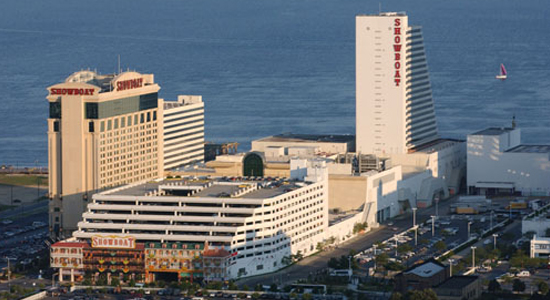TOP STORIES
Macau Gambling Hub’s Declining Revenues Cause for Alarm
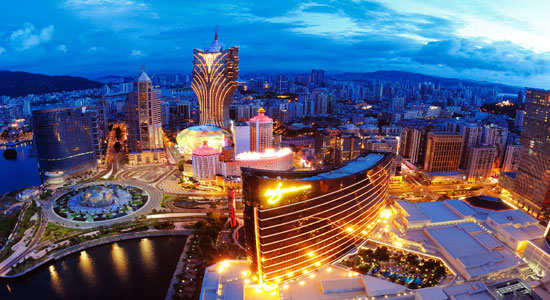
In 2014, Macanese gaming revenue decreased 2.6% to $54.4 billion. This is the first nose-dive of profits ever to be recorded, in 11 years, since 2002, when gambling laws liberated the casino market to competition. Revenues plunged 30.4% cent to $9 billion in the last month of 2014, making it the seventh straight month that profits have been waning.Macau, the largest gambling hub in the world, has seen its revenues steadily decline at an alarming rate last year. Analysts and gambling operators alike are speculating if the global recession is the main cause or is Jingping’s clampdown on illegal money laundering the main cause for concern.The Sidney Morning Herald: James Packer among billionaires hit by $100 billion Macau casino losses
The Chinese government crackdown on corruption in the gambling stronghold of Macau has left a whopping $100 billion hole in the market value of the six Macau casino stocks in 2014. The campaign, including the fight against debit card scams, impacted negatively on gambling activities. This has caused the gambling hub to experience its very first slump in gambling returns since 2002.
Australian billionaire James Packer, and other gambling operators, such as his joint venture partner’s father Stanley, or yet still anti-online gambling campaigner Sheldon Adelson, have all their casinos in a rut. Meanwhile analysts converge and discuss what all this could mean for the world’s largest gambling resort and its fortunes.
The Hong Kong exchange recently revealed in online mobile news, that all six Macau casino stocks listed a combined loss in market value amounting to $92 billion, in the 12 months up to December 31. The parent company Crown Resorts has 33.6 per cent of the joint venture and Ho another 33.6%.
Melco Crown alone lost a whopping $8 billion in market capitalization during last year. The fall represents a 35% decline in stock value just a year after the company’s value doubled, when gambling revenue increased 19% per cent.
However, the current decline in market capitalization has left the company opting to withdraw from the Hong Kong exchange, citing difficulties in raising funds and the need to limit share trades. Crown Resorts, said it was determined though to stick it out in the NASDAQ listings.
Sheldon Adelson’s Las Vegas Sands’ subsidiary, Sands China, fared even worse. It hit a record low market capitalization of all the six stocks, with a mere $26 billion in profits. 40% loss in stock value was reported in 2014. Stanley Ho’s SJM Holdings, came out a little less scathed, with a 52 % loss in value, representing a market capitalization decline of $7 billion.
Channel News Asia: Melco Crown to delist in HK after Macau revenue slump
Hong Kong businessman Lawrence Ho and, James Packer, son of the defunct Australian media and gambling magnate, Kerry Packer, have communicated, in the latest gambling news that Melco Crown Entertainment has had its first plunge in profits ever, in Macau.
Melco Crown’s City of Dreams resort complex stock would be removed from the Hong Kong stock exchange in order to save costs and for practical reasons. For, to carry the listing would demand ‘additional ongoing regulatory compliance obligations and such requirements involve significant additional costs’.
The company went on to say that for now a solution hasn’t been found to increase profits even with a market capitalization of close to US$14 billion. However it also stated that it would keep its security on the official register of the NASDAQ in the US. Friday, 2 January, 2015 shares closed at a low 4.88% at US$24.16.
The ex-Portuguese colony reported on January 2 that gambling yields went down 2.6% year-on-year to US$44 billion last year. This has been the only decline since yearly numbers were made available to the public as of 2002.
Macau, China’s only legal casino gambling hub, relies heavily on high rollers from mainland China. However, big spenders are being scared off by the anti-corruption campaign launched by Chinese President Xi Jinping and his government to clamp down on Chinese officials accepting bribes. This has resulted in a slowdown in the mainland economy which directly affects casino earnings.
The Sidney Morning Herald: Packer’s Melco Crown set to quit Hong Kong Stock Exchange
Melco Crown Entertainment whose Macau casino is jointly owned by James Packer’s Crown Resorts and Macau gaming mogul Lawrence Ho has revealed that it will pull out of the Hong Kong Stock Exchange because of the immense pressure to raise money and limit share trades. However, it will remain on the NASDAQ, where its ‘shareholders are far more active’.
The company says it hopes that this move will not adversely affect the asset value or earnings for each share. It explains its actions by citing that “Appropriate opportunities to raise additional equity in Hong Kong have not arisen and maintaining the listing requires additional ongoing regulatory compliance obligations and such requirements involve significant additional costs and administrative burden”.
Crown Resorts who owns 33.6 % of the company and Ho, the same, now have to contend with decreased numbers of gamers from the mainland. Macau, which was once swarmed with eager punters who had just a little more than the China welfare lottery from mainland China, have had better days since public records started to reveal gambling revenues in 2002.
Chinese government’s campaign against illegal cash flow between the gaming hub and its officialdom has been blamed for the crisis at hand. Just last year October Crown Resorts hoped for a turnaround but come year end the chief executive, Rowen Craigie, admitted that “market conditions in Macau did weaken during the fourth quarter of financial year 2014”.
Some analysts speculate that gambling revenues may pick up by 10% in 2015, others think a decline of 9% is more likely to happen. Given the current worldwide financial crisis, the actual outcome will be like that of the toss of a coin – no one really knows.

In 2014, Macanese gaming revenue decreased 2.6% to $54.4 billion. This is the first nose-dive of profits ever to be recorded, in 11 years, since 2002, when gambling laws liberated the casino market to competition. Revenues plunged 30.4% cent to $9 billion in the last month of 2014, making it the seventh straight month that profits have been waning.Macau, the largest gambling hub in the world, has seen its revenues steadily decline at an alarming rate last year. Analysts and gambling operators alike are speculating if the global recession is the main cause or is Jingping’s clampdown on illegal money laundering the main cause for concern.The Sidney Morning Herald: James Packer among billionaires hit by $100 billion Macau casino losses
The Chinese government crackdown on corruption in the gambling stronghold of Macau has left a whopping $100 billion hole in the market value of the six Macau casino stocks in 2014. The campaign, including the fight against debit card scams, impacted negatively on gambling activities. This has caused the gambling hub to experience its very first slump in gambling returns since 2002.
Australian billionaire James Packer, and other gambling operators, such as his joint venture partner’s father Stanley, or yet still anti-online gambling campaigner Sheldon Adelson, have all their casinos in a rut. Meanwhile analysts converge and discuss what all this could mean for the world’s largest gambling resort and its fortunes.
The Hong Kong exchange recently revealed in online mobile news, that all six Macau casino stocks listed a combined loss in market value amounting to $92 billion, in the 12 months up to December 31. The parent company Crown Resorts has 33.6 per cent of the joint venture and Ho another 33.6%.
Melco Crown alone lost a whopping $8 billion in market capitalization during last year. The fall represents a 35% decline in stock value just a year after the company’s value doubled, when gambling revenue increased 19% per cent.
However, the current decline in market capitalization has left the company opting to withdraw from the Hong Kong exchange, citing difficulties in raising funds and the need to limit share trades. Crown Resorts, said it was determined though to stick it out in the NASDAQ listings.
Sheldon Adelson’s Las Vegas Sands’ subsidiary, Sands China, fared even worse. It hit a record low market capitalization of all the six stocks, with a mere $26 billion in profits. 40% loss in stock value was reported in 2014. Stanley Ho’s SJM Holdings, came out a little less scathed, with a 52 % loss in value, representing a market capitalization decline of $7 billion.
Channel News Asia: Melco Crown to delist in HK after Macau revenue slump
Hong Kong businessman Lawrence Ho and, James Packer, son of the defunct Australian media and gambling magnate, Kerry Packer, have communicated, in the latest gambling news that Melco Crown Entertainment has had its first plunge in profits ever, in Macau.
Melco Crown’s City of Dreams resort complex stock would be removed from the Hong Kong stock exchange in order to save costs and for practical reasons. For, to carry the listing would demand ‘additional ongoing regulatory compliance obligations and such requirements involve significant additional costs’.
The company went on to say that for now a solution hasn’t been found to increase profits even with a market capitalization of close to US$14 billion. However it also stated that it would keep its security on the official register of the NASDAQ in the US. Friday, 2 January, 2015 shares closed at a low 4.88% at US$24.16.
The ex-Portuguese colony reported on January 2 that gambling yields went down 2.6% year-on-year to US$44 billion last year. This has been the only decline since yearly numbers were made available to the public as of 2002.
Macau, China’s only legal casino gambling hub, relies heavily on high rollers from mainland China. However, big spenders are being scared off by the anti-corruption campaign launched by Chinese President Xi Jinping and his government to clamp down on Chinese officials accepting bribes. This has resulted in a slowdown in the mainland economy which directly affects casino earnings.
The Sidney Morning Herald: Packer’s Melco Crown set to quit Hong Kong Stock Exchange
Melco Crown Entertainment whose Macau casino is jointly owned by James Packer’s Crown Resorts and Macau gaming mogul Lawrence Ho has revealed that it will pull out of the Hong Kong Stock Exchange because of the immense pressure to raise money and limit share trades. However, it will remain on the NASDAQ, where its ‘shareholders are far more active’.
The company says it hopes that this move will not adversely affect the asset value or earnings for each share. It explains its actions by citing that “Appropriate opportunities to raise additional equity in Hong Kong have not arisen and maintaining the listing requires additional ongoing regulatory compliance obligations and such requirements involve significant additional costs and administrative burden”.
Crown Resorts who owns 33.6 % of the company and Ho, the same, now have to contend with decreased numbers of gamers from the mainland. Macau, which was once swarmed with eager punters who had just a little more than the China welfare lottery from mainland China, have had better days since public records started to reveal gambling revenues in 2002.
Chinese government’s campaign against illegal cash flow between the gaming hub and its officialdom has been blamed for the crisis at hand. Just last year October Crown Resorts hoped for a turnaround but come year end the chief executive, Rowen Craigie, admitted that “market conditions in Macau did weaken during the fourth quarter of financial year 2014”.
Some analysts speculate that gambling revenues may pick up by 10% in 2015, others think a decline of 9% is more likely to happen. Given the current worldwide financial crisis, the actual outcome will be like that of the toss of a coin – no one really knows.
2014 in Sports Betting: From Fantasy Sports to the Sports Trading Club Scam
This year’s World Cup in Brazil brought joy and excitement for sports fans and millions of dollars in profit for wagering companies, but it also created the perfect opportunity for illegal betting syndicates to thrive.
Two major scandals – Peter Foster’s Sports Trading Club and a suspicious betting operation led by Wei Seng Phua from his rented villas at Caesars Palace – are still under police investigation, but it’s not all bad news. For the fantasy sports industry, 2014 was a great year, with significant growth and promising perspectives.
Let’s take a quick look at some of the most significant events that happened in the sports and wagering industry this year.
GamingZion: The Birth of Fantasy Sports Spawns Billion Dollar Industry
Fantasy sports have become increasingly popular over the past decade. At least in the US, where sports betting is illegal – online or otherwise. There are only four states where local players can legally wager on sports, but not via the internet. But players have found a way around these rules and discovered a new way to quench their thirst for gambling.
Fantasy sports are games where users take on the role of make-believe owners of professional sports teams. And what sports fan wouldn’t want to take a shot at managing their own football, basketball or baseball team? The options are endless.
Last year, the Fantasy Sports Trade Association made $11 billion in revenues. And while some play as a hobby, with their friends or coworkers, others enter that very grey area of American gambling laws and turn it into a fantasy sports betting operation.
ESPN, Yahoo!, CBS Sports, and the NFL are fully aware of how profitable this industry is becoming. The NFL itself has invested a lot of money in hi-tech platforms that support fantasy football league requirements.
Forbes: Will ESPN, Yahoo! Or CBS Buy This Fantasy Sports Startup?
According to Forbes, major companies like ESPN , Yahoo! and CBS could enter the fantasy sports scene in the future. The investors may be joining well established names like FanDuel and DraftKings, created in 2009 and 2012 respectively. But since it would take a long time to build a reputation, buying existing platforms makes more business sense.
Dan Ziernick, one of the most successful daily fantasy sports players has decided to invest in developing his own platform, to compete with FanDuel and other websites which have helped him earn win about $3.5 million throughout his career. This is how FantasyUp was born. The new platform’s major selling point is a no-rake policy which will remain in effect until April 1, 2015.
“The big vision in this industry is that the players like ESPN, Yahoo! and CBS, are going to enter this space once legalities of online gambling clears up,” Ziernicki said. “What we’re really focusing on is being the technological company for the future. To be able to process large amounts of data in real time. We are not there yet, but we are already able to handle the biggest daily fantasy sports day ever.”
The players believe another three to five years will pass before big names like ESPN or Yahoo will get into daily fantasy sports, but he is convinced that, by then, his platform will be a in the right place for a potential acquisition.
Sydney Morning Herald: Peter Foster implicated in international betting scam
Notorious conman Peter Foster was arrested at his luxury property near Byron Bay and could lose millions of dollars, after police found evidence linking him to an illegal operating ring called the Sports Trading Club. It is believed that he ran the business while hiding from authorities.
According to a police source, Foster had six mobile phones and several computers in a home office, which he used to operate a betting syndicate that claimed to be based in London, Sydney and Hong Kong.
The source added: “It doesn’t matter what they claim on their website, Fosters’ home in Byron Bay was the headquarters. This is another massive scam that is only coming to light now. It will collapse like a house of cards.”
Sports Trading Club, also known as STC Sports Trading Club and The Sports Trading Club Partnership accepts money from high-paying clients and “invests” it in international sports betting. This July, the company claimed to have made $150 million by backing Germany to win the World Cup.
Review Journal: International mob-connected ring linked to illegal World Cup betting at Caesars
Shortly after the World Cup in Brazil ended, the police have shut down an alleged multimillion-dollar illegal sports betting business operated from three villas at Caesars Palace. Authorities believed the ring was run by Malaysian and Chinese nationals and led by poker player Paul Phua. Police said his son, Darren Wai Kit Phua, was also involved.
In a criminal complaint, Las Vegas FBI Agent Minh Pham claimed Wei Seng Phua was “known by law enforcement to be a high-ranking member of the 14K Triad.” His lawyer denied these claims.
Assistant U.S. Attorney Kimberly Frayn wanted to keep both father and son under arrest, saying they were threats to flee, but U.S. Magistrate Judge Bill Hoffman ordered their release, imposing several restrictions including a $2 million bail. Phua also had to put up his $48 million private jet as collateral.
Phua was arrested on similar grounds on June 18 in Macau, where he and 20 other people were accused of running a large gambling ring that accepted hundreds of millions of dollars in illegal bets.

This year’s World Cup in Brazil brought joy and excitement for sports fans and millions of dollars in profit for wagering companies, but it also created the perfect opportunity for illegal betting syndicates to thrive.
Two major scandals – Peter Foster’s Sports Trading Club and a suspicious betting operation led by Wei Seng Phua from his rented villas at Caesars Palace – are still under police investigation, but it’s not all bad news. For the fantasy sports industry, 2014 was a great year, with significant growth and promising perspectives.
Let’s take a quick look at some of the most significant events that happened in the sports and wagering industry this year.
GamingZion: The Birth of Fantasy Sports Spawns Billion Dollar Industry
Fantasy sports have become increasingly popular over the past decade. At least in the US, where sports betting is illegal – online or otherwise. There are only four states where local players can legally wager on sports, but not via the internet. But players have found a way around these rules and discovered a new way to quench their thirst for gambling.
Fantasy sports are games where users take on the role of make-believe owners of professional sports teams. And what sports fan wouldn’t want to take a shot at managing their own football, basketball or baseball team? The options are endless.
Last year, the Fantasy Sports Trade Association made $11 billion in revenues. And while some play as a hobby, with their friends or coworkers, others enter that very grey area of American gambling laws and turn it into a fantasy sports betting operation.
ESPN, Yahoo!, CBS Sports, and the NFL are fully aware of how profitable this industry is becoming. The NFL itself has invested a lot of money in hi-tech platforms that support fantasy football league requirements.
Forbes: Will ESPN, Yahoo! Or CBS Buy This Fantasy Sports Startup?
According to Forbes, major companies like ESPN , Yahoo! and CBS could enter the fantasy sports scene in the future. The investors may be joining well established names like FanDuel and DraftKings, created in 2009 and 2012 respectively. But since it would take a long time to build a reputation, buying existing platforms makes more business sense.
Dan Ziernick, one of the most successful daily fantasy sports players has decided to invest in developing his own platform, to compete with FanDuel and other websites which have helped him earn win about $3.5 million throughout his career. This is how FantasyUp was born. The new platform’s major selling point is a no-rake policy which will remain in effect until April 1, 2015.
“The big vision in this industry is that the players like ESPN, Yahoo! and CBS, are going to enter this space once legalities of online gambling clears up,” Ziernicki said. “What we’re really focusing on is being the technological company for the future. To be able to process large amounts of data in real time. We are not there yet, but we are already able to handle the biggest daily fantasy sports day ever.”
The players believe another three to five years will pass before big names like ESPN or Yahoo will get into daily fantasy sports, but he is convinced that, by then, his platform will be a in the right place for a potential acquisition.
Sydney Morning Herald: Peter Foster implicated in international betting scam
Notorious conman Peter Foster was arrested at his luxury property near Byron Bay and could lose millions of dollars, after police found evidence linking him to an illegal operating ring called the Sports Trading Club. It is believed that he ran the business while hiding from authorities.
According to a police source, Foster had six mobile phones and several computers in a home office, which he used to operate a betting syndicate that claimed to be based in London, Sydney and Hong Kong.
The source added: “It doesn’t matter what they claim on their website, Fosters’ home in Byron Bay was the headquarters. This is another massive scam that is only coming to light now. It will collapse like a house of cards.”
Sports Trading Club, also known as STC Sports Trading Club and The Sports Trading Club Partnership accepts money from high-paying clients and “invests” it in international sports betting. This July, the company claimed to have made $150 million by backing Germany to win the World Cup.
Review Journal: International mob-connected ring linked to illegal World Cup betting at Caesars
Shortly after the World Cup in Brazil ended, the police have shut down an alleged multimillion-dollar illegal sports betting business operated from three villas at Caesars Palace. Authorities believed the ring was run by Malaysian and Chinese nationals and led by poker player Paul Phua. Police said his son, Darren Wai Kit Phua, was also involved.
In a criminal complaint, Las Vegas FBI Agent Minh Pham claimed Wei Seng Phua was “known by law enforcement to be a high-ranking member of the 14K Triad.” His lawyer denied these claims.
Assistant U.S. Attorney Kimberly Frayn wanted to keep both father and son under arrest, saying they were threats to flee, but U.S. Magistrate Judge Bill Hoffman ordered their release, imposing several restrictions including a $2 million bail. Phua also had to put up his $48 million private jet as collateral.
Phua was arrested on similar grounds on June 18 in Macau, where he and 20 other people were accused of running a large gambling ring that accepted hundreds of millions of dollars in illegal bets.

Tags: betting on football, fantasy sports sites, gambling laws, illegal betting site, Sports Trading Club
The week in pictures: November 25th – December 1st, 2014

There was no shortage of news last week around the world so lets look back at some of the biggest stories that snatched the headlines.
Authorities in Ferguson Missouri were forced to call in the National Guard as widespread rioting overwhelmed the beleagued police force following the jury verdict finding Officer Darren Wilson inculpable after the August 9th shooting that saw him gun down the unarmed black teenager Michael Brown. With buildings set ablaze and numerous arrests the riots mark a low point in the relationship between the almost entirely white police force and vastly black population they serve. Officer Darren Wilson then resigned from his position, a move that has done little to quell tension in the town.
The teenage daughters of President Obama came under fire from Republican Elizabeth Lauten who posted on Facebook following their appearance at the turkey pardoning ceremony alongside their father at the White House. “Dress like you deserve respect, not a spot at a bar.” She said of the 13 and 16 year old girls outfits, adding that she felt they lacked class but lamented, “your mother and father don’t respect their positions very much, or the nation for that matter. So I’m guessing you’re coming up a little short in the ‘good role model’ department.”. She then deleted the statement and apologized insincerely, much to the annoyance of the internet.
The Black Friday chaos proved to be a little less fraught this year as many stores tried to ease the rush by beginning their sales on Thanksgiving itself. As millions of Americans sat down to eat with their families and then went out to grab some early Christmas shopping bargains with very few instances of trouble, across the Atlantic in the UK (which doesn’t even celebrate thanksgiving) there were scenes of unbridled consumerist madness with the police being called to deal with trouble at several stores that began their sales at midnight and saw pandemonium break out upon opening their doors to the great British public.
In sport the Cricketing world paid its respects after the sad death of 25 year old Australian Phillip Hughes who died last week having been hit by the ball. The tragic accident has placed the first test between India and Australia, due to start on Thursday in Brisbane, in doubt and an already busy schedule may mean it won’t go ahead at all. Negotiations between the teams on the matter continued into the weekend and to find out if or when it goes ahead you’ll have to check our daily news pages regularly but in the meantime here’s some of the stories that hit our headlines last week.
1. Despite his conflict with Borgata, poker pro Phil Ivey has endorsed the casino’s new partner, the Pala Casino online gambling site.

2.The Florida Lottery has a bright future ahead. Lottery sales in the Sunshine State already reached an impressive $5.3 billion and now lawmakers are considering introducing online sales in the state.
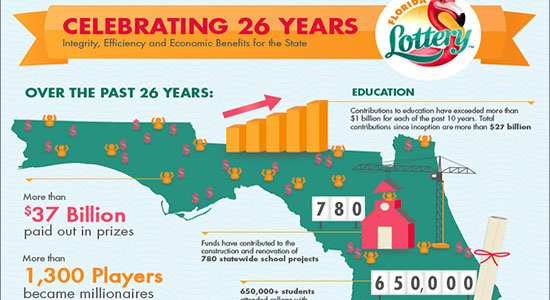
3.Neteller co-founder’s biography was released. Readers could discover the story behind the successful and controversial John Lefebvre.

4.The recent casino cheating case involving US Navy Rear Admiral Timothy Giardani got everybody’s attention.

5.What seems to be holding back the growth in the Macau casino industry?
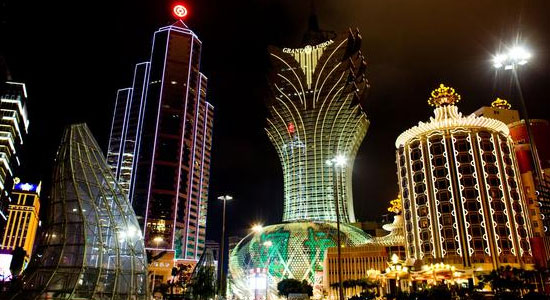
6.Favourit and EveryMatrix launched multi-lingual online and mobile platform to the delight of players.

7.The Polish government is considering reviewing their policies on international gambling operations.

Meanwhile the queen of the crime novel, PD James, died peacefully at the age of 94 in her Oxford home having written 20 books including “Children of Men” and the massively successful series featuring the detective Adam Dalgliesh that were adapted for television, and in Hong Kong protestors attempted to move on the Chief Executive’s office only to be met by batons, pepper-spray and water hoses from authorities tired of the softly-softly approach. Will there be more chaos on the streets of this gambling capital? You’ll have to check in with our daily news pages to find out.



There was no shortage of news last week around the world so lets look back at some of the biggest stories that snatched the headlines.
Authorities in Ferguson Missouri were forced to call in the National Guard as widespread rioting overwhelmed the beleagued police force following the jury verdict finding Officer Darren Wilson inculpable after the August 9th shooting that saw him gun down the unarmed black teenager Michael Brown. With buildings set ablaze and numerous arrests the riots mark a low point in the relationship between the almost entirely white police force and vastly black population they serve. Officer Darren Wilson then resigned from his position, a move that has done little to quell tension in the town.
The teenage daughters of President Obama came under fire from Republican Elizabeth Lauten who posted on Facebook following their appearance at the turkey pardoning ceremony alongside their father at the White House. “Dress like you deserve respect, not a spot at a bar.” She said of the 13 and 16 year old girls outfits, adding that she felt they lacked class but lamented, “your mother and father don’t respect their positions very much, or the nation for that matter. So I’m guessing you’re coming up a little short in the ‘good role model’ department.”. She then deleted the statement and apologized insincerely, much to the annoyance of the internet.
The Black Friday chaos proved to be a little less fraught this year as many stores tried to ease the rush by beginning their sales on Thanksgiving itself. As millions of Americans sat down to eat with their families and then went out to grab some early Christmas shopping bargains with very few instances of trouble, across the Atlantic in the UK (which doesn’t even celebrate thanksgiving) there were scenes of unbridled consumerist madness with the police being called to deal with trouble at several stores that began their sales at midnight and saw pandemonium break out upon opening their doors to the great British public.
In sport the Cricketing world paid its respects after the sad death of 25 year old Australian Phillip Hughes who died last week having been hit by the ball. The tragic accident has placed the first test between India and Australia, due to start on Thursday in Brisbane, in doubt and an already busy schedule may mean it won’t go ahead at all. Negotiations between the teams on the matter continued into the weekend and to find out if or when it goes ahead you’ll have to check our daily news pages regularly but in the meantime here’s some of the stories that hit our headlines last week.
1. Despite his conflict with Borgata, poker pro Phil Ivey has endorsed the casino’s new partner, the Pala Casino online gambling site.

2.The Florida Lottery has a bright future ahead. Lottery sales in the Sunshine State already reached an impressive $5.3 billion and now lawmakers are considering introducing online sales in the state.

3.Neteller co-founder’s biography was released. Readers could discover the story behind the successful and controversial John Lefebvre.

4.The recent casino cheating case involving US Navy Rear Admiral Timothy Giardani got everybody’s attention.

5.What seems to be holding back the growth in the Macau casino industry?

6.Favourit and EveryMatrix launched multi-lingual online and mobile platform to the delight of players.

7.The Polish government is considering reviewing their policies on international gambling operations.

Meanwhile the queen of the crime novel, PD James, died peacefully at the age of 94 in her Oxford home having written 20 books including “Children of Men” and the massively successful series featuring the detective Adam Dalgliesh that were adapted for television, and in Hong Kong protestors attempted to move on the Chief Executive’s office only to be met by batons, pepper-spray and water hoses from authorities tired of the softly-softly approach. Will there be more chaos on the streets of this gambling capital? You’ll have to check in with our daily news pages to find out.


Tags: Adam Dalgliesh, australia, Brisbane, casino gambling, Children of Men, christmas, Darren Wilson, detective, Elizabeth Lauten, facebook, finding Officer, India, John Lefebvre, jury verdict, lottery, macau, multi-lingual platform, National Guard, Neteller, Obama, online and mobile platform, online gambling, online sales, Oxford, phil ivey, Phillip Hughes, Polish government, Polish Ministry of Finance, PresidentChief Executive co-founder, queen, Rear Admiral, Thanksgiving, Timothy Giardina, United Kingdom, United States Navy, USD, White House
Florida Could Start Selling Lottery Tickets Online

However, the new bill has few details on how the web service would work. New York residents can buy tickets using credit cards; players living in Georgia use a prepaid lottery card system; Illinois limits online purchases to $150 a day and allows winnings to be deposited into an online account. In Florida’s case, these details haven’t been clarified yet.
In support of her proposal, Margolis argued that internet sales would help increase revenue for the lottery, which is among the state’s biggest fundraisers. On the other hand, many fear that stores will take a financial blow if players will be able to conveniently purchase tickets from the comfort of their own homes.
United Press International: Florida Lottery could sell tickets online if bill passes
Last week, Florida State Sen. Gwen Margolis, D-Coconut Grove, introduced a bill proposing that the Sunshine State allow players to purchase lottery tickets online. If the bill is approved, Florida will become the eighth state to legalize online ticket sales.
“[The lottery is] one of the biggest fundraisers we have,” Margolis said. According to the latest gambling news, the Senator believes that legalizing online ticket sales would be much more beneficial for the state than building a casino resort in South Florida. This is a project Las Vegas Sands Corp. has been lobbying for over the past months.
“This way, anybody who wants to buy them can buy them. Expand that instead of having big problems with major gaming in the community,” she affirmed.
Opponents of the bill fear that allowing people to purchase tickets online would create more problems for gambling addicts. Brian Kongsvik, the helpline director of the Florida Council on Compulsive Gambling, says being able to use a line of credit would cause people to lose that sense of pulling money out of their pockets. But Margolis argued that gamblers “like to sit at the table” and enjoy “the social part of it”.
All seven states offering online lottery tickets have their own payment mechanisms. The bill introduced by Margolis doesn’t mention which method would be used in Florida. Bill SB 120 is a one-page proposal stating:
“[The Lottery] shall have the authority to create a program that allows a person who is 18 years of age or older to make an online purchase of a Florida lottery ticket. The department may adopt rules to administer the program.”
Sun Sentinel: Florida Lottery may go online
Florida legislators could make playing the lottery a lot easier if they approve a bill introduced by state Sen. Gwen Margolis, D-Coconut Grove, and allow the lottery to sell tickets online. At present, tickets can only be bought at brick-and-mortar outlets and stores.
The Florida Lottery was founded in 1988, when voters passed a constitutional amendment that authorized the organization two years before. Over the years, lottery sales helped bring in $27 billion for education. Most of that profit was put in a trust fund to be divided up by the state legislature.
The proposal has some people worried about the harmful effects it might have on gambling addicts, but Margolis doesn’t think the online lottery would have a negative impact. Problem gamblers “like to sit at the table,” she said.
Brian Kongsvik, the helpline director of the Florida Council on Compulsive Gambling explained: “With any online gambling, and the potential to use a line of credit, it loses that physical pulling money out of pocket.”
When it comes to legalizing gambling, the organization is neutral. However, Kongsvik fears that making lottery tickets that easily accessible could result in more people needing the help of his organization.
“In theory, there is no doubt about it that some individuals that have a gambling problem, or the potential to develop one, could use credit lines to gamble more than they normally would,” he explained.
Florida Courier: Florida Lottery sales hit record-setting $5.3 billion
As Florida residents become more and more obsessed with scratch cards and lottery tickets, the state lottery reported it had reached record sales of $5.3 billion earlier in July. While part of that profit goes to the state budget and educational programs, the organization spends between $28 million and $30 million on advertising every year.
Even before the Powerball or Mega Millions rollover jackpot spurred sales, the Florida Lottery posted $5.36 billion at its last sales report. The year before that, it was just over $5 billion. About 60% of the money goes to winners, leaving $1.49 billion for the Educational Enhancement Trust Fund.
The increased revenues were generated by a growth in ticket sales. Scratch-off tickets are available in more than 13,000 locations across the state, with prices ranging from $1 to $25. Over the past year, sales went up by 12.7%. The $25 ticket is the most popular one, accounting for $13 million in weekly sales. Powerball sold $469 million, Mega Millions made $167 million and Lotto reached $349 million.
Lottery Deputy Secretary of Sales Tom Delacenserie said: “If we have a $600 million jackpot or $550 million jackpot, we just get out of the way and the sales take off. Last year we didn’t get up that high.”

However, the new bill has few details on how the web service would work. New York residents can buy tickets using credit cards; players living in Georgia use a prepaid lottery card system; Illinois limits online purchases to $150 a day and allows winnings to be deposited into an online account. In Florida’s case, these details haven’t been clarified yet.
In support of her proposal, Margolis argued that internet sales would help increase revenue for the lottery, which is among the state’s biggest fundraisers. On the other hand, many fear that stores will take a financial blow if players will be able to conveniently purchase tickets from the comfort of their own homes.
United Press International: Florida Lottery could sell tickets online if bill passes
Last week, Florida State Sen. Gwen Margolis, D-Coconut Grove, introduced a bill proposing that the Sunshine State allow players to purchase lottery tickets online. If the bill is approved, Florida will become the eighth state to legalize online ticket sales.
“[The lottery is] one of the biggest fundraisers we have,” Margolis said. According to the latest gambling news, the Senator believes that legalizing online ticket sales would be much more beneficial for the state than building a casino resort in South Florida. This is a project Las Vegas Sands Corp. has been lobbying for over the past months.
“This way, anybody who wants to buy them can buy them. Expand that instead of having big problems with major gaming in the community,” she affirmed.
Opponents of the bill fear that allowing people to purchase tickets online would create more problems for gambling addicts. Brian Kongsvik, the helpline director of the Florida Council on Compulsive Gambling, says being able to use a line of credit would cause people to lose that sense of pulling money out of their pockets. But Margolis argued that gamblers “like to sit at the table” and enjoy “the social part of it”.
All seven states offering online lottery tickets have their own payment mechanisms. The bill introduced by Margolis doesn’t mention which method would be used in Florida. Bill SB 120 is a one-page proposal stating:
“[The Lottery] shall have the authority to create a program that allows a person who is 18 years of age or older to make an online purchase of a Florida lottery ticket. The department may adopt rules to administer the program.”
Sun Sentinel: Florida Lottery may go online
Florida legislators could make playing the lottery a lot easier if they approve a bill introduced by state Sen. Gwen Margolis, D-Coconut Grove, and allow the lottery to sell tickets online. At present, tickets can only be bought at brick-and-mortar outlets and stores.
The Florida Lottery was founded in 1988, when voters passed a constitutional amendment that authorized the organization two years before. Over the years, lottery sales helped bring in $27 billion for education. Most of that profit was put in a trust fund to be divided up by the state legislature.
The proposal has some people worried about the harmful effects it might have on gambling addicts, but Margolis doesn’t think the online lottery would have a negative impact. Problem gamblers “like to sit at the table,” she said.
Brian Kongsvik, the helpline director of the Florida Council on Compulsive Gambling explained: “With any online gambling, and the potential to use a line of credit, it loses that physical pulling money out of pocket.”
When it comes to legalizing gambling, the organization is neutral. However, Kongsvik fears that making lottery tickets that easily accessible could result in more people needing the help of his organization.
“In theory, there is no doubt about it that some individuals that have a gambling problem, or the potential to develop one, could use credit lines to gamble more than they normally would,” he explained.
Florida Courier: Florida Lottery sales hit record-setting $5.3 billion
As Florida residents become more and more obsessed with scratch cards and lottery tickets, the state lottery reported it had reached record sales of $5.3 billion earlier in July. While part of that profit goes to the state budget and educational programs, the organization spends between $28 million and $30 million on advertising every year.
Even before the Powerball or Mega Millions rollover jackpot spurred sales, the Florida Lottery posted $5.36 billion at its last sales report. The year before that, it was just over $5 billion. About 60% of the money goes to winners, leaving $1.49 billion for the Educational Enhancement Trust Fund.
The increased revenues were generated by a growth in ticket sales. Scratch-off tickets are available in more than 13,000 locations across the state, with prices ranging from $1 to $25. Over the past year, sales went up by 12.7%. The $25 ticket is the most popular one, accounting for $13 million in weekly sales. Powerball sold $469 million, Mega Millions made $167 million and Lotto reached $349 million.
Lottery Deputy Secretary of Sales Tom Delacenserie said: “If we have a $600 million jackpot or $550 million jackpot, we just get out of the way and the sales take off. Last year we didn’t get up that high.”
Tags: Brian Kongsvik, D-Coconut Grove, Educational Enhancement Trust Fund, Florida Council on Compulsive Gambling, Florida Lottery, gambling bonuses, Gwen Margolis, Las Vegas Sands, Latest gambling news, lotto, Mega Millions, online lottery tickets, powerball, Sun Sentinel, Tom Delacenserie
Pala Casino off to a Promising Start on New Jersey’s Online Gambling Market

The Pala Band of Mission Indians have become the first tribe to offer internet gambling services in New Jersey, one of the three US states where gambling laws allow players to access online casino games.
The website went live in mid-November, but procedure requires gambling sites to go through a testing phase before becoming fully available. During this period, the service was only open to a limited number of players, for a limited number of hours per day.
Pala Interactive chief marketing officer Jeremy Clemons explained: “Our launch in New Jersey is a huge step for the company, and we want to make sure we’re rolling out one of the best, most user-friendly casino experience on the market.”
The restrictions were gradually lifted over the course of a week and now the new Pala Casino website is in full swing, after having obtained the New Jersey gambling regulator’s permission. For this project, the Pala Band of Mission Indians partnered up with Atlantic City’s Borgata Casino, a company that already holds a license to run such operations in the state.
Jim Ryan, chief executive officer of Pala Interactive, told reporters: “We had a solid weekend and we have yet to start marketing. We believe we are breaking into the New Jersey market at the perfect time.”
Star Tribune: California-based Pala tribe becomes first to launch Internet gambling site in New Jersey
The tribe has entered the New Jersey online gambling market around the same time when the state marked its one year anniversary since its first internet casino went live. There isn’t much to celebrate, however, as New Jersey’s online gambling industry hasn’t produced nearly as much as officials had predicted a year ago.
On November 25, 2013, local authorities announced optimistic projections of $1 billion in the first year alone. Unfortunately, New Jersey’s online casinos have only managed to produce about a tenth of that – $111 million to be more precise,
The tribe operates the Pala Casino and Spa in San Diego County, California, and it created a new branch – Pala Interactive – to expand its services in the virtual realm. Since it doesn’t hold a license to operate casinos in New Jersey, the organization paired up with the Atlantic City-based Borgata Casino, to use its license to operate internet gambling sites in the state.
Furthermore, the tribe has already announced it was planning to launch an online poker site in New Jersey, in the first quarter of 2015.
PokerFuse: Phil Ivey Endorses New Jersey’s Latest Online Casino
In July 2013, Pokerfuse exclusively reported that professional poker player Phil Ivey had signed an agreement to become the brand ambassador for Pala Interactive. The tribe hasn’t had much success in launching a product in California, as the state hasn’t legalized online poker sites yet.
However, since Pala Casino went live in New Jersey, Ivey came out publicly to congratulate welcome the tribe to the state. According to the latest gambling news, the poker player used his Twitter account to encourage followers to “check out” the online casino’s gaming offer.
Owned by the Pala Band of Mission Indians and operated under Borgata’s license, this is the first regulated tribe-run online casino in the US. An internet poker site will follow sometime next year.
Earlier this month, the media speculated that the Pala tribe and Phil Ivey had gone their separate ways because of a disagreement between the poker pro and Borgata. The casino accused him of cheating and even sued him for $9.6 million, claiming that he and his accomplice exploited a flaw on the back of the cards to gain an unfair advantage over the casino, when playing baccarat.
Ivey was involved in a similar scandal with the Crockfords Club Casino in England. This time, it was the poker player who sued the gambling venue, because the company had refused to pay out his $7.7 million winnings. The Crockfords Club argued the same thing – that Ivey had deceived the dealer and won through a technique called “edge sorting”. The court ruled against the poker player.
U-T San Diego: Ringo sets Pala show for 2015
One of the two surviving members of the legendary Beatles, Ringo Starr, has announced a show at the Events Center at Pala Casino, Spa & Resort. The event will take place on March 14, 2015. The star will be celebrating his 75th birthday next year.
This will be the final stop on a 30-day tour where fans can see Starr and his All Starr Band. The event will take them through five Southern states, Puerto Rico, Brazil, the Dominican Republic, Chile, Colombia, Mexico and California.
Tickets for the show at the Pala Casino are priced at $125, $100 and $95. In addition to this event, the band will have concerts on March 12 in Santa Ynez and on March 13 in San Francisco.

The Pala Band of Mission Indians have become the first tribe to offer internet gambling services in New Jersey, one of the three US states where gambling laws allow players to access online casino games.
The website went live in mid-November, but procedure requires gambling sites to go through a testing phase before becoming fully available. During this period, the service was only open to a limited number of players, for a limited number of hours per day.
Pala Interactive chief marketing officer Jeremy Clemons explained: “Our launch in New Jersey is a huge step for the company, and we want to make sure we’re rolling out one of the best, most user-friendly casino experience on the market.”
The restrictions were gradually lifted over the course of a week and now the new Pala Casino website is in full swing, after having obtained the New Jersey gambling regulator’s permission. For this project, the Pala Band of Mission Indians partnered up with Atlantic City’s Borgata Casino, a company that already holds a license to run such operations in the state.
Jim Ryan, chief executive officer of Pala Interactive, told reporters: “We had a solid weekend and we have yet to start marketing. We believe we are breaking into the New Jersey market at the perfect time.”
Star Tribune: California-based Pala tribe becomes first to launch Internet gambling site in New Jersey
The tribe has entered the New Jersey online gambling market around the same time when the state marked its one year anniversary since its first internet casino went live. There isn’t much to celebrate, however, as New Jersey’s online gambling industry hasn’t produced nearly as much as officials had predicted a year ago.
On November 25, 2013, local authorities announced optimistic projections of $1 billion in the first year alone. Unfortunately, New Jersey’s online casinos have only managed to produce about a tenth of that – $111 million to be more precise,
The tribe operates the Pala Casino and Spa in San Diego County, California, and it created a new branch – Pala Interactive – to expand its services in the virtual realm. Since it doesn’t hold a license to operate casinos in New Jersey, the organization paired up with the Atlantic City-based Borgata Casino, to use its license to operate internet gambling sites in the state.
Furthermore, the tribe has already announced it was planning to launch an online poker site in New Jersey, in the first quarter of 2015.
PokerFuse: Phil Ivey Endorses New Jersey’s Latest Online Casino
In July 2013, Pokerfuse exclusively reported that professional poker player Phil Ivey had signed an agreement to become the brand ambassador for Pala Interactive. The tribe hasn’t had much success in launching a product in California, as the state hasn’t legalized online poker sites yet.
However, since Pala Casino went live in New Jersey, Ivey came out publicly to congratulate welcome the tribe to the state. According to the latest gambling news, the poker player used his Twitter account to encourage followers to “check out” the online casino’s gaming offer.
Owned by the Pala Band of Mission Indians and operated under Borgata’s license, this is the first regulated tribe-run online casino in the US. An internet poker site will follow sometime next year.
Earlier this month, the media speculated that the Pala tribe and Phil Ivey had gone their separate ways because of a disagreement between the poker pro and Borgata. The casino accused him of cheating and even sued him for $9.6 million, claiming that he and his accomplice exploited a flaw on the back of the cards to gain an unfair advantage over the casino, when playing baccarat.
Ivey was involved in a similar scandal with the Crockfords Club Casino in England. This time, it was the poker player who sued the gambling venue, because the company had refused to pay out his $7.7 million winnings. The Crockfords Club argued the same thing – that Ivey had deceived the dealer and won through a technique called “edge sorting”. The court ruled against the poker player.
U-T San Diego: Ringo sets Pala show for 2015
One of the two surviving members of the legendary Beatles, Ringo Starr, has announced a show at the Events Center at Pala Casino, Spa & Resort. The event will take place on March 14, 2015. The star will be celebrating his 75th birthday next year.
This will be the final stop on a 30-day tour where fans can see Starr and his All Starr Band. The event will take them through five Southern states, Puerto Rico, Brazil, the Dominican Republic, Chile, Colombia, Mexico and California.
Tickets for the show at the Pala Casino are priced at $125, $100 and $95. In addition to this event, the band will have concerts on March 12 in Santa Ynez and on March 13 in San Francisco.
PwC Predicts Tough Times for South African Gambling Industry
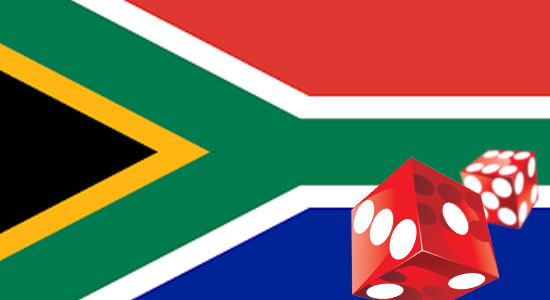
From a financial point of view, South Africa’s casinos are doing very well. As the most popular form of gambling in the country, these businesses are raking in as much as R17 billion every year. But while the land-based casino industry is still the most profitable, competition is getting heated as other forms of gambling are growing at a rapid rate.
This week, accounting firm PwC released a detailed report on how the gambling industry could evolve in the following few years. The document takes a closer look at casinos in South Africa, Nigeria and Kenya and speculates on the trends the industry could follow between this year and 2018.
PwC’s predictions are not too optimistic. As the country’s economy is slowing down, its gambling market will face the same slowdown, the accounting firm said.
BusinessDay: Bingo and sports betting make inroads into casinos
In its report, PwC studied the growth prospects for casinos, as well as limited payout machines, bingo, sports betting and lottery games in South Africa. The country has 37 land-based casinos, which made a total of R16.5 billion profits last year. The industry has grown on a year-to-year basis, but only by a modest 0.6%.
Last year turnover increased 4%, a drop from the 7.6% growth in the previous year and the smallest profit made since 2009.
“We expect continued slow growth in SA over the next two years,” the accounting company said. “We then look for a pick-up in growth in each country as economic conditions improve. Some casino operators in certain locations believe that the slowdown in 2013 was due in part to growing competition from electronic bingo terminals, limited payout machines and sports betting shops, which are becoming more prevalent,” said the report.
Meanwhile, bingo operations have generated 67.5% increased revenue last year, while limited payout machines grew 17.8% and sports betting by 9.1%. According to online gambling news, bingo is the smallest category, with revenue of just R732 million, but the industry is constantly growing. Sports betting went up 18.5% and horse racing grew 4.6%, and PwC expects sports wagering to overtake horse racing in the next five years.
Charl Faurie, a spokesperson for SA’s Casino Association, said the association does not see alternative forms of legal gambling as a threat. However, illegal gambling operations are having a negative impact on the industry.
“The rapid increase of illegal online gambling is of particular concern to us as we estimate billions of rands are lost in tax revenue per year which has an obvious negative economic effect on the country. Casa is taking specific actions to address this threat beginning with a mass-media awareness campaign which will launch in the next few months,” Faurie said.
GamingZion: Online Gambling Sites in South Africa Could Be Banned
For years, politicians have been discussing changing the country’s gambling laws, as the industry expected them to regulate the online casino market. But recent news said authorities were considering doing the exact opposite: banning internet gambling in South Africa.
In addition to this, the media said lawmakers are also talking about setting limits on the number of electronic bingo machines and forbidding dog races. While these measures are just in the form of a proposal at the moment, if the draft becomes law all hope of having legal online casinos in the country will be lost.
Of course, not all officials agree with the proposal. Geordin Hill-Lewis, Member of Parliament (DA) and Shadow Minister of Trade and Industry believes it will cost the state more to enforce the law, than to legalize internet gambling. But others note that the number of problem gamblers has increased in recent years, and so has the level of indebtedness.
In addition to forbidding online gambling, South Africa authorities want to introduce licenses for the horse racing industry, in hopes that this measure will make gambling less accessible.
CityPress: Davies tackles gambling board’s mismanagement
Trade and Industry Minister Rob Davies suspended members of the National Gambling Board (NGB) on allegations of maladministration, wasteful spending and corrupt activities. The agency’s activities will be investigated by authorities, to find out if the accusations are true.
The board is normally responsible for overseeing the gambling industry and regulating South Africa’s multi-billion-rand market. Davies noted that the suspension was a precautionary measure, after an alleged contravention of the Public Finance Management Act through “failing to prevent irregular, fruitless and wasteful expenditure, and making overdraft on the entity’s bank account without the approval of the minister of finance”.
The board is accused of breaking the National Gambling Act by “allowing members whose term of office had expired to continue participating in the board’s activities and representing the NGB”, and there was a mention of “apparent corrupt activities” regarding the National Central Electronic Monitoring System, as well as “unlawful appointments of staff”.
Members of the board were also accused of intimidation, bullying and getting rid of evidence, which is why Davies decided to suspend them until the investigation is over.

From a financial point of view, South Africa’s casinos are doing very well. As the most popular form of gambling in the country, these businesses are raking in as much as R17 billion every year. But while the land-based casino industry is still the most profitable, competition is getting heated as other forms of gambling are growing at a rapid rate.
This week, accounting firm PwC released a detailed report on how the gambling industry could evolve in the following few years. The document takes a closer look at casinos in South Africa, Nigeria and Kenya and speculates on the trends the industry could follow between this year and 2018.
PwC’s predictions are not too optimistic. As the country’s economy is slowing down, its gambling market will face the same slowdown, the accounting firm said.
BusinessDay: Bingo and sports betting make inroads into casinos
In its report, PwC studied the growth prospects for casinos, as well as limited payout machines, bingo, sports betting and lottery games in South Africa. The country has 37 land-based casinos, which made a total of R16.5 billion profits last year. The industry has grown on a year-to-year basis, but only by a modest 0.6%.
Last year turnover increased 4%, a drop from the 7.6% growth in the previous year and the smallest profit made since 2009.
“We expect continued slow growth in SA over the next two years,” the accounting company said. “We then look for a pick-up in growth in each country as economic conditions improve. Some casino operators in certain locations believe that the slowdown in 2013 was due in part to growing competition from electronic bingo terminals, limited payout machines and sports betting shops, which are becoming more prevalent,” said the report.
Meanwhile, bingo operations have generated 67.5% increased revenue last year, while limited payout machines grew 17.8% and sports betting by 9.1%. According to online gambling news, bingo is the smallest category, with revenue of just R732 million, but the industry is constantly growing. Sports betting went up 18.5% and horse racing grew 4.6%, and PwC expects sports wagering to overtake horse racing in the next five years.
Charl Faurie, a spokesperson for SA’s Casino Association, said the association does not see alternative forms of legal gambling as a threat. However, illegal gambling operations are having a negative impact on the industry.
“The rapid increase of illegal online gambling is of particular concern to us as we estimate billions of rands are lost in tax revenue per year which has an obvious negative economic effect on the country. Casa is taking specific actions to address this threat beginning with a mass-media awareness campaign which will launch in the next few months,” Faurie said.
GamingZion: Online Gambling Sites in South Africa Could Be Banned
For years, politicians have been discussing changing the country’s gambling laws, as the industry expected them to regulate the online casino market. But recent news said authorities were considering doing the exact opposite: banning internet gambling in South Africa.
In addition to this, the media said lawmakers are also talking about setting limits on the number of electronic bingo machines and forbidding dog races. While these measures are just in the form of a proposal at the moment, if the draft becomes law all hope of having legal online casinos in the country will be lost.
Of course, not all officials agree with the proposal. Geordin Hill-Lewis, Member of Parliament (DA) and Shadow Minister of Trade and Industry believes it will cost the state more to enforce the law, than to legalize internet gambling. But others note that the number of problem gamblers has increased in recent years, and so has the level of indebtedness.
In addition to forbidding online gambling, South Africa authorities want to introduce licenses for the horse racing industry, in hopes that this measure will make gambling less accessible.
CityPress: Davies tackles gambling board’s mismanagement
Trade and Industry Minister Rob Davies suspended members of the National Gambling Board (NGB) on allegations of maladministration, wasteful spending and corrupt activities. The agency’s activities will be investigated by authorities, to find out if the accusations are true.
The board is normally responsible for overseeing the gambling industry and regulating South Africa’s multi-billion-rand market. Davies noted that the suspension was a precautionary measure, after an alleged contravention of the Public Finance Management Act through “failing to prevent irregular, fruitless and wasteful expenditure, and making overdraft on the entity’s bank account without the approval of the minister of finance”.
The board is accused of breaking the National Gambling Act by “allowing members whose term of office had expired to continue participating in the board’s activities and representing the NGB”, and there was a mention of “apparent corrupt activities” regarding the National Central Electronic Monitoring System, as well as “unlawful appointments of staff”.
Members of the board were also accused of intimidation, bullying and getting rid of evidence, which is why Davies decided to suspend them until the investigation is over.
Tags: gambling laws, Gambling laws in South Africa, Online gambling news, online poker, sports betting, sportsbook
Court Puts New Jersey Sports Betting on Hold

A federal judge intervened to temporarily block New Jersey’s plans to allow sports betting at the state’s racetrack and casinos.
State lawmakers have been trying to find ways to bring sports betting to New Jersey for years, but it looks like all attempts are destined to fail. A few weeks ago, officials passed a bill allowing licensed casinos and racetracks to accept wagers.
After Governor Chris Christie signed the document into law and Monmouth Park said it was ready to start taking bets last Sunday, professional sports leagues challenged the decision in court, asking the judge to issue a temporary restraining order to prevent this from happening.
U.S. District Judge Michael Shipp decided to grant the request made by the National Football League, the National Collegiate Athletic Association and other sports groups, but did not rule on the merits of the issue yet. A full hearing will be scheduled in the future.
A spokesman for Christie emphasized that the restraining order is temporary and added: “We continue to have full confidence in the strength and appropriateness of our position as we move forward in the litigation.”
USA Today: Judge: New Jersey can’t launch sports betting
Latest gambling news announce that a federal judge decided not to allow casinos and racetracks in New Jersey to start taking sports bets. In his ruling late Friday, US District Court Judge Michael Shipp put in place a temporary restraining order to prevent state operators from offering such services last week.
Monmouth Park was planning on giving its bookmaking operations a test run on Sunday, when it would have accepted bets on NFL games, but the court said Governor Chris Christie can’t launch sports betting in the state for now.
Monmouth Park officials were expecting about 10,000 people to rush to the track this Sunday to bet on Jets-Bills, Eagles-Cardinals, as well as on other NFL games. The track was going to open as early as 7 am, in order to allow visitors to place wagers on the Lions-Falcons game played in London at 9:30 am E.T.
But the NFL and other American sports leagues have filed a complaint asking the judge to stop state operators from taking bets immediately, invoking a 1992 federal law restricting sports betting to Nevada, Delaware, Oregon, and Montana.
A final decision will be made only after a full hearing, but for now the judge has issued a restraining order stopping Monmouth Park from going ahead with its plans. Attorneys representing the racetrack have argued that the business won’t survive without this new source of revenue.
NESN: Judge Grants Leagues’ Request, Stops N.J. Sports Betting Temporarily
Following a request from four major professional sports leagues and the NCAA, a federal judge issued a restraining order preventing New Jersey operators from taking sports bets for now. The request was made by the NFL, the NBA, the NHL, Major League Baseball and the NCAA, who went to court over a new bill signed by Governor Chris Christie, allowing casinos and racetracks in the state to offer betting services.
Under current gambling laws, Nevada is the only state allowed to offer betting on individual games at local bookmakers. Delaware also offers multi-game parlay pools, requiring players to pick several games correctly before winning any money.
“More legal gambling leads to more total gambling, which in turns leads to an increased incentive to fix plaintiffs’ matches,” Shipp said in court last Friday, adding that sports betting in New Jersey “would engender the same ills” that lawmakers sought to combat when they came up with the 1992 federal law.
Attorneys representing the sports organizations have argued that the leagues would suffer irreparable harm if such offers were available in the state. The lawsuit will proceed and the court will schedule a full hearing, but Shipp said a temporary restraining order was necessary to make sure that the matter is properly debated in court first.
Wall Street Journal: Judge Blocks Bid to Legalize Sports Betting in New Jersey
A previous attempt to overturn the sports betting ban and allow New Jersey players to bet on sports failed, and officials are not sure what will happen next. For now, Nevada continues to remain the only state where sports betting is fully legal. Delaware has a few similar operations, but the state only offers multi-game parlay pools.
While Atlantic City casinos said they would wait for the judge’s decision before starting any bookmaking operations, Monmouth Park Racetrack had originally planned to begin sports betting this weekend. The venue’s plans were put on hold by the restraining order.
Dennis Drazin, the operator of Monmouth Park, wrote in a recent statement: “While we are disappointed not to be able to start this Sunday, we are confident that sports betting will be coming to New Jersey in the very near future.”
While preventing the racetrack from starting its new operations, Judge Shipp also requested the five plaintiffs to put up a $1.7 million bond, to cover New Jersey’s potential revenue losses should the state eventually win the argument. The judge also said the temporary restraining order only applies to sports scores at events run by the four leagues and the NCAA.


A federal judge intervened to temporarily block New Jersey’s plans to allow sports betting at the state’s racetrack and casinos.
State lawmakers have been trying to find ways to bring sports betting to New Jersey for years, but it looks like all attempts are destined to fail. A few weeks ago, officials passed a bill allowing licensed casinos and racetracks to accept wagers.
After Governor Chris Christie signed the document into law and Monmouth Park said it was ready to start taking bets last Sunday, professional sports leagues challenged the decision in court, asking the judge to issue a temporary restraining order to prevent this from happening.
U.S. District Judge Michael Shipp decided to grant the request made by the National Football League, the National Collegiate Athletic Association and other sports groups, but did not rule on the merits of the issue yet. A full hearing will be scheduled in the future.
A spokesman for Christie emphasized that the restraining order is temporary and added: “We continue to have full confidence in the strength and appropriateness of our position as we move forward in the litigation.”
USA Today: Judge: New Jersey can’t launch sports betting
Latest gambling news announce that a federal judge decided not to allow casinos and racetracks in New Jersey to start taking sports bets. In his ruling late Friday, US District Court Judge Michael Shipp put in place a temporary restraining order to prevent state operators from offering such services last week.
Monmouth Park was planning on giving its bookmaking operations a test run on Sunday, when it would have accepted bets on NFL games, but the court said Governor Chris Christie can’t launch sports betting in the state for now.
Monmouth Park officials were expecting about 10,000 people to rush to the track this Sunday to bet on Jets-Bills, Eagles-Cardinals, as well as on other NFL games. The track was going to open as early as 7 am, in order to allow visitors to place wagers on the Lions-Falcons game played in London at 9:30 am E.T.
But the NFL and other American sports leagues have filed a complaint asking the judge to stop state operators from taking bets immediately, invoking a 1992 federal law restricting sports betting to Nevada, Delaware, Oregon, and Montana.
A final decision will be made only after a full hearing, but for now the judge has issued a restraining order stopping Monmouth Park from going ahead with its plans. Attorneys representing the racetrack have argued that the business won’t survive without this new source of revenue.
NESN: Judge Grants Leagues’ Request, Stops N.J. Sports Betting Temporarily
Following a request from four major professional sports leagues and the NCAA, a federal judge issued a restraining order preventing New Jersey operators from taking sports bets for now. The request was made by the NFL, the NBA, the NHL, Major League Baseball and the NCAA, who went to court over a new bill signed by Governor Chris Christie, allowing casinos and racetracks in the state to offer betting services.
Under current gambling laws, Nevada is the only state allowed to offer betting on individual games at local bookmakers. Delaware also offers multi-game parlay pools, requiring players to pick several games correctly before winning any money.
“More legal gambling leads to more total gambling, which in turns leads to an increased incentive to fix plaintiffs’ matches,” Shipp said in court last Friday, adding that sports betting in New Jersey “would engender the same ills” that lawmakers sought to combat when they came up with the 1992 federal law.
Attorneys representing the sports organizations have argued that the leagues would suffer irreparable harm if such offers were available in the state. The lawsuit will proceed and the court will schedule a full hearing, but Shipp said a temporary restraining order was necessary to make sure that the matter is properly debated in court first.
Wall Street Journal: Judge Blocks Bid to Legalize Sports Betting in New Jersey
A previous attempt to overturn the sports betting ban and allow New Jersey players to bet on sports failed, and officials are not sure what will happen next. For now, Nevada continues to remain the only state where sports betting is fully legal. Delaware has a few similar operations, but the state only offers multi-game parlay pools.
While Atlantic City casinos said they would wait for the judge’s decision before starting any bookmaking operations, Monmouth Park Racetrack had originally planned to begin sports betting this weekend. The venue’s plans were put on hold by the restraining order.
Dennis Drazin, the operator of Monmouth Park, wrote in a recent statement: “While we are disappointed not to be able to start this Sunday, we are confident that sports betting will be coming to New Jersey in the very near future.”
While preventing the racetrack from starting its new operations, Judge Shipp also requested the five plaintiffs to put up a $1.7 million bond, to cover New Jersey’s potential revenue losses should the state eventually win the argument. The judge also said the temporary restraining order only applies to sports scores at events run by the four leagues and the NCAA.

The week in pictures: November 11th – November 17th, 2014

The world last week was a place of excitement and disaster so lets look back at some of the big stories that hit the headlines
Quatar was cleared of allegations of wrong doing surrounding their being awarded the 2022 World Cup by FIFA the body that oversees international soccer. Despite a huge number of allegations the report supposedly gave the rich nation in which it’s actually too hot to feasibly play football a clean bill of health although the report itself is not to be published in full and has already been criticized by one of the authors for being misrepresented. UEFA are already threatening to quit FIFA over the scandal.And a scandal is perhaps what the Rosetta project could become as the 1.4 billion Euro adventure into the depths of space managed to get 300 million miles from Earth, catch up with a speeding comet and then crash into it, bounce a few times and dive into one of the few places its solar panels couldn’t recharge its batteries. Still hailed as a huge success by the scientific community it remains to be seen just how much real information will be gleaned from the results.
Of course real information is hard to come by these days and Vladimir Putin seemed a tad disingenuous when he cited a long journey home and a need for sleep as being the reasons behind his leaving the G20 Summit in Australia quite as early as he did. Of course many observers would point to the fact just about every other leader had lambasted him for his attitude and behavior over Ukraine, and that Russia was rapidly becoming isolated on the world stage.
In sports a very disappointed Roger Federer was forced to pull out of the ATP World Tour final versus long term rival Novak Djokovic due to a back injury. Apologizing in person at the O2 Arena in London he said sorry for not being match fit in what was a massive PR disaster for the ATP, and an unfortunately tainted default win for Djokovic who admitted this wasn’t the way he wanted to win the trophy. Will Federer recover his fitness or have we seen the last of the six time ATP champion? Find out on our daily news pages but in the meantime lets have a look back at our headlines from last week.
1. One company’s trash is another company’s treasure. With Echo Group hunting VIP gamblers, the Townsville casino was becoming too insignificant in the whole picture, so the company sold it for $70 million to someone willing to fix it up and revive it.
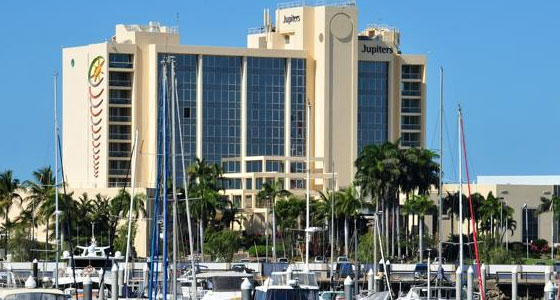
2. After remote gambling operators have taken a major financial blow because of the new license fees and taxes imposed in the UK, the Maltese Government is offering to help heal their bleeding wounds.
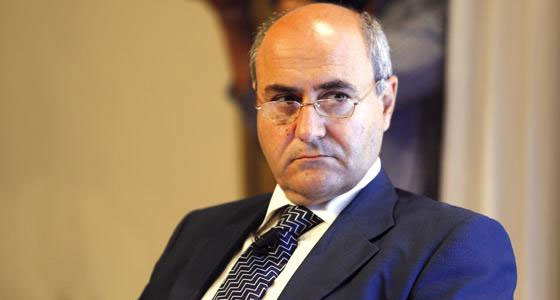
3. A trained chef and poker player, Martin Jacobson has surely figured out the secret recipe for success, because he just won $10 million and his very first gold bracelet at the World Series of Poker.
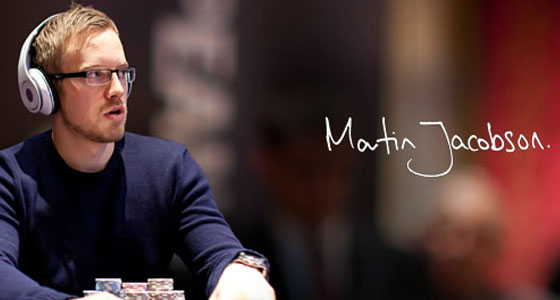
4. It took a long time, but Atlantic City is finally waking up and smelling the coffee. Losing five casinos and leaving thousands of workers unemployed has finally hurt enough to convince officials that it’s time for a change.
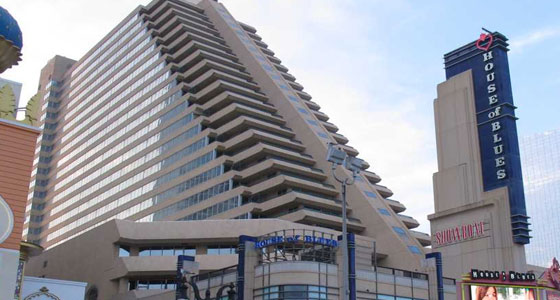
5. One of the largest Asian gambling groups, Genting, is resilient to the general decline on the gambling market.
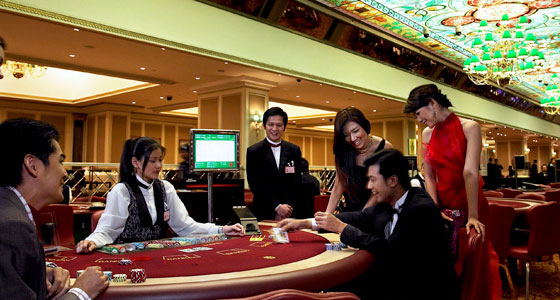
6. The state of Illinois allowed video gaming machines in bars and restaurants and so far the experience has been positive.
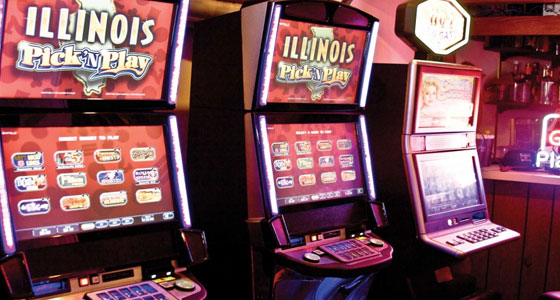
7. New information has been made available in connection to Paul Phua illegal betting ring, which might lead to case dismissal.

Meanwhile Boko Haran we accused of being behind the suicide bombing that struck a Nigerian school assembly killing 46 and injuring 79 students, an event that made a mockery of government claims to have signed a ceasefire with the Islamic terrorist group, and elsewhere the Dutch have discovered a new outbreak of an even more contagious, and thus dangerous, strain of bird flu that can be transmitted to humans. Will we all end up tarred and feathered? You’ll have to keep up to date with our daily news pages to find out.



The world last week was a place of excitement and disaster so lets look back at some of the big stories that hit the headlines
Quatar was cleared of allegations of wrong doing surrounding their being awarded the 2022 World Cup by FIFA the body that oversees international soccer. Despite a huge number of allegations the report supposedly gave the rich nation in which it’s actually too hot to feasibly play football a clean bill of health although the report itself is not to be published in full and has already been criticized by one of the authors for being misrepresented. UEFA are already threatening to quit FIFA over the scandal.And a scandal is perhaps what the Rosetta project could become as the 1.4 billion Euro adventure into the depths of space managed to get 300 million miles from Earth, catch up with a speeding comet and then crash into it, bounce a few times and dive into one of the few places its solar panels couldn’t recharge its batteries. Still hailed as a huge success by the scientific community it remains to be seen just how much real information will be gleaned from the results.
Of course real information is hard to come by these days and Vladimir Putin seemed a tad disingenuous when he cited a long journey home and a need for sleep as being the reasons behind his leaving the G20 Summit in Australia quite as early as he did. Of course many observers would point to the fact just about every other leader had lambasted him for his attitude and behavior over Ukraine, and that Russia was rapidly becoming isolated on the world stage.
In sports a very disappointed Roger Federer was forced to pull out of the ATP World Tour final versus long term rival Novak Djokovic due to a back injury. Apologizing in person at the O2 Arena in London he said sorry for not being match fit in what was a massive PR disaster for the ATP, and an unfortunately tainted default win for Djokovic who admitted this wasn’t the way he wanted to win the trophy. Will Federer recover his fitness or have we seen the last of the six time ATP champion? Find out on our daily news pages but in the meantime lets have a look back at our headlines from last week.
1. One company’s trash is another company’s treasure. With Echo Group hunting VIP gamblers, the Townsville casino was becoming too insignificant in the whole picture, so the company sold it for $70 million to someone willing to fix it up and revive it.

2. After remote gambling operators have taken a major financial blow because of the new license fees and taxes imposed in the UK, the Maltese Government is offering to help heal their bleeding wounds.

3. A trained chef and poker player, Martin Jacobson has surely figured out the secret recipe for success, because he just won $10 million and his very first gold bracelet at the World Series of Poker.

4. It took a long time, but Atlantic City is finally waking up and smelling the coffee. Losing five casinos and leaving thousands of workers unemployed has finally hurt enough to convince officials that it’s time for a change.

5. One of the largest Asian gambling groups, Genting, is resilient to the general decline on the gambling market.

6. The state of Illinois allowed video gaming machines in bars and restaurants and so far the experience has been positive.

7. New information has been made available in connection to Paul Phua illegal betting ring, which might lead to case dismissal.

Meanwhile Boko Haran we accused of being behind the suicide bombing that struck a Nigerian school assembly killing 46 and injuring 79 students, an event that made a mockery of government claims to have signed a ceasefire with the Islamic terrorist group, and elsewhere the Dutch have discovered a new outbreak of an even more contagious, and thus dangerous, strain of bird flu that can be transmitted to humans. Will we all end up tarred and feathered? You’ll have to keep up to date with our daily news pages to find out.


Tags: Arena, atlantic city, australia, Casino Campus, Chris LaPelusa, Echo Group, EUR, fifa, G20, illinois, Jose Herrera, London, Malta, Martin Jacobson, Morgan Evan, Novak Djokovic, o2, Parliamentary, Paul Phua, roger federer, russia, Spy, Tennis Münchenstein, terrorist, the 2022 World Cup, the World Series, Townsville, uefa, Ukraine, United Kingdom, USD, Vladimir Putin, world series of poker, Youtube Genting
Former Gambling Resort Opens the Door for Schools and Conference Centers
Atlantic City hasn’t had much luck this year, but authorities are looking for ways to “stop the bleeding” and help the city recover financially.
The former gambling kingdom just can’t catch a break. By the end of this year, Atlantic City may see its fifth casino sink, causing unemployment rates to go up yet again. As the city is suffering from the closures, authorities are looking for a way to bounce back by completely rebuilding it.
There are a number of closed shops and casinos in the city, but if you think about how hard Atlantic City has had it this year, you’ll be quite pleasantly impressed with the amount of new construction here. Right across from the now-bankrupt Trump Plaza, a Bass Pro outdoor goods store will rise over an entire city block.
According to online gambling news, New Jersey’s Casino Reinvestment Development Authority offered land and $12 million in cash to help develop the project which will employ 290 people. Mayor Don Guardian says the city has become too dependent on gambling revenues, but it’s time for a change.
“The city was happy, because it provided decent jobs with benefits and it paid the taxes, but we lost everything else. You lose your whole entrepreneurial spirit,” he said in an interview.
NPR: As Casinos Fold, Stakes Are High For Atlantic City Transformation
Just as Las Vegas did two decades ago, Atlantic City is trying to become less dependent on casino profits and branch out more into entertainment. It’s looking to become a destination for conferences and various events, not just a place where you can gamble.
Caesars Entertainment said it took nine million pounds of steel to build the structure of the new Waterfront Conference Center in Atlantic City, which has received substantial backing from the developer and from the casino reinvestment authority. Rick Mazer, regional president of Caesars Entertainment said: “This is the business that I think will evolve and regrow Atlantic City.”
However, some experts are skeptical of the project’s potential to succeed. Oliver Cooke, an economist at nearby Richard Stockton College of New Jersey, has his doubts. “You simply are not going to consume your way out of the morass that you’re in,” he explained. “Doing things like building more retail, building more convention centers, has a very, very limited upside.”
Meanwhile, authorities are talking about reselling, reopening and repurposing some casinos. Just last week, Stockton College announced it was going to buy the old Showboat property and The Revel’s new owners are allegedly planning to make a new investment and reopen the venue.
But Atlantic City needs more than just commercial projects. Mayor Don Guardian hopes to see new residents move in and rebuild the city. “Then we’ve gotta work on our school system,” he continues. “But I gotta fix the city first, find jobs, get taxes, reduce cost of government, make the place pretty, and then we’ll work on the schools. I like the challenge.”
Washington Times: Taxes, schools, casinos key to Christie AC plan
Atlantic City officials are trying to come up with ways to get the economy up and running again. Governor Chris Christie has commissioned a plan calling for more predictable taxes for casinos, temporarily freezing taxes on non-gambling property and halting payments on employee pension plans, as well as offering more support for schools that reduce costs.
The commission appointed to study Atlantic City’s future prospects has released a set of recommendations, but the governor hasn’t committed himself to anything yet. According to the commission, the city should have an emergency manager holding “extraordinary supervisory powers” over expenses and taxes.
Experts added that Atlantic City should form a public-private development corporation, similar to the one that helped New Brunswick. An essential part of the plan is property tax reform.
“Extraordinary state and local support is required in the transition phase of the Atlantic City revitalization strategy focusing on immediate activities with a high probability of success, including balancing the municipal and school cost structure toward ‘new normal,’” panel Chairman Jon Hanson wrote.
The report said: “High effective rates and a rapidly declining tax base have created an immense financial burden for residents, local businesses and the casino industry,” the report read. The “entire Atlantic City gaming industry is at risk as each incremental casino closure results in a greater tax increase than revenue increase for the surviving casinos.”
If freed from making pension payments for three years, the city could save up to $71.1 million, while in the same time reducing the need to borrow money. The plan proposes regionalizing the police and fire departments, thus cutting costs by $25 million a year.
The $30 million used by the Atlantic City Alliance to promote the city should be redirected to the new development corporation, ACDevCo, the commission recommended.
Reuters: New Jersey college buys Atlantic City’s closed Showboat casino
The shuttered Showboat Atlantic City gambling resort formerly operated by Caesars Entertainment could be bought by a college in southern New Jersey. The Richard Stockton College wants to transform the 1.4 million square foot property completely, by turning it into a campus.
The building sits on 28 beachfront acres and holds 1,329 hotel rooms. The deal is subject to due diligence checks, but the terms of the contract were not disclosed yet.
Stockton president Herman Saatkamp said: “Our intent is to engage in a project that enhances Stockton’s educational growth, offerings and cost-containment while at the same time brings new educational opportunities to Atlantic City.”
Although the casino resort was still making profit, Caesars closed it in August. The venues was reportedly sacrificed in an attempt to consolidate the city’s deteriorating gaming market.
Caesars CEO Gary Loveman is hopeful that the new agreement could help steer the local economy in a new direction. “The transformation and revitalization of Atlantic City requires the addition of a diverse set of reasons for people to come visit,” he told reporters.
In 2010, Stockton College bought the Seaview Resort in Galloway Township for $20 million. Part of the property is used to house students and train them in hospitality.
Atlantic City hasn’t had much luck this year, but authorities are looking for ways to “stop the bleeding” and help the city recover financially.
The former gambling kingdom just can’t catch a break. By the end of this year, Atlantic City may see its fifth casino sink, causing unemployment rates to go up yet again. As the city is suffering from the closures, authorities are looking for a way to bounce back by completely rebuilding it.
There are a number of closed shops and casinos in the city, but if you think about how hard Atlantic City has had it this year, you’ll be quite pleasantly impressed with the amount of new construction here. Right across from the now-bankrupt Trump Plaza, a Bass Pro outdoor goods store will rise over an entire city block.
According to online gambling news, New Jersey’s Casino Reinvestment Development Authority offered land and $12 million in cash to help develop the project which will employ 290 people. Mayor Don Guardian says the city has become too dependent on gambling revenues, but it’s time for a change.
“The city was happy, because it provided decent jobs with benefits and it paid the taxes, but we lost everything else. You lose your whole entrepreneurial spirit,” he said in an interview.
NPR: As Casinos Fold, Stakes Are High For Atlantic City Transformation
Just as Las Vegas did two decades ago, Atlantic City is trying to become less dependent on casino profits and branch out more into entertainment. It’s looking to become a destination for conferences and various events, not just a place where you can gamble.
Caesars Entertainment said it took nine million pounds of steel to build the structure of the new Waterfront Conference Center in Atlantic City, which has received substantial backing from the developer and from the casino reinvestment authority. Rick Mazer, regional president of Caesars Entertainment said: “This is the business that I think will evolve and regrow Atlantic City.”
However, some experts are skeptical of the project’s potential to succeed. Oliver Cooke, an economist at nearby Richard Stockton College of New Jersey, has his doubts. “You simply are not going to consume your way out of the morass that you’re in,” he explained. “Doing things like building more retail, building more convention centers, has a very, very limited upside.”
Meanwhile, authorities are talking about reselling, reopening and repurposing some casinos. Just last week, Stockton College announced it was going to buy the old Showboat property and The Revel’s new owners are allegedly planning to make a new investment and reopen the venue.
But Atlantic City needs more than just commercial projects. Mayor Don Guardian hopes to see new residents move in and rebuild the city. “Then we’ve gotta work on our school system,” he continues. “But I gotta fix the city first, find jobs, get taxes, reduce cost of government, make the place pretty, and then we’ll work on the schools. I like the challenge.”
Washington Times: Taxes, schools, casinos key to Christie AC plan
Atlantic City officials are trying to come up with ways to get the economy up and running again. Governor Chris Christie has commissioned a plan calling for more predictable taxes for casinos, temporarily freezing taxes on non-gambling property and halting payments on employee pension plans, as well as offering more support for schools that reduce costs.
The commission appointed to study Atlantic City’s future prospects has released a set of recommendations, but the governor hasn’t committed himself to anything yet. According to the commission, the city should have an emergency manager holding “extraordinary supervisory powers” over expenses and taxes.
Experts added that Atlantic City should form a public-private development corporation, similar to the one that helped New Brunswick. An essential part of the plan is property tax reform.
“Extraordinary state and local support is required in the transition phase of the Atlantic City revitalization strategy focusing on immediate activities with a high probability of success, including balancing the municipal and school cost structure toward ‘new normal,’” panel Chairman Jon Hanson wrote.
The report said: “High effective rates and a rapidly declining tax base have created an immense financial burden for residents, local businesses and the casino industry,” the report read. The “entire Atlantic City gaming industry is at risk as each incremental casino closure results in a greater tax increase than revenue increase for the surviving casinos.”
If freed from making pension payments for three years, the city could save up to $71.1 million, while in the same time reducing the need to borrow money. The plan proposes regionalizing the police and fire departments, thus cutting costs by $25 million a year.
The $30 million used by the Atlantic City Alliance to promote the city should be redirected to the new development corporation, ACDevCo, the commission recommended.
Reuters: New Jersey college buys Atlantic City’s closed Showboat casino
The shuttered Showboat Atlantic City gambling resort formerly operated by Caesars Entertainment could be bought by a college in southern New Jersey. The Richard Stockton College wants to transform the 1.4 million square foot property completely, by turning it into a campus.
The building sits on 28 beachfront acres and holds 1,329 hotel rooms. The deal is subject to due diligence checks, but the terms of the contract were not disclosed yet.
Stockton president Herman Saatkamp said: “Our intent is to engage in a project that enhances Stockton’s educational growth, offerings and cost-containment while at the same time brings new educational opportunities to Atlantic City.”
Although the casino resort was still making profit, Caesars closed it in August. The venues was reportedly sacrificed in an attempt to consolidate the city’s deteriorating gaming market.
Caesars CEO Gary Loveman is hopeful that the new agreement could help steer the local economy in a new direction. “The transformation and revitalization of Atlantic City requires the addition of a diverse set of reasons for people to come visit,” he told reporters.
In 2010, Stockton College bought the Seaview Resort in Galloway Township for $20 million. Part of the property is used to house students and train them in hospitality.
Tags: ACDevCo, atlantic city, Atlantic City Alliance, Caesars Entertainment, Casino Reinvestment Development Authority, Chris Christie, Don Guardian, Galloway Township, Gary Loveman, Herman Saatkamp, Jon Hanson, New Brunswick, Online gambling news, Richard Stockton College, Rick Mazer, Seaview Resort, Showboat
Chef Turned Poker Player Wins His First Major Tournament
If you thought amateur poker players don’t have what it takes to win major tournaments, guess again.
When 27 year-old Martin Jacobson made it to the final table at the World Series of Poker 2014, many believed the Swedish poker player just got lucky. To think that he would actually win the tournament seemed unthinkable a few weeks ago, when online gambling news introduced him to the world as a former cook who took a break from his time in the kitchen to give poker a try.
Before participating in the November Nine, he had made it to four final tables and had earned more than $1.2 million. But nothing compares to his latest accomplishment: the $10 million guaranteed prize offered at the World Series of Poker, along with a title coveted even by the industry’s biggest names.
The tournament lasted for more than 81 hours. It took Jacobson 45 hours to oust Norwegian player Felix Stephensenand and win his first gold bracelet. “This is what I played for,” he said, referring to his new $500,000 bracelet. “This is all that mattered to me.”
Bleacher Report: WSOP 2014 Results: Winner, Prize Money for November 9 Main Event Finals
Martin Jacobson was already on the right track to becoming a well-respected poker player, but the $10 million prize and gold bracelet he won at this year’s WSOP will surely boost his career. His outstanding performance was applauded by fellow players and poker fans, as he beat out Jorryt van Hoof and Felix Stephensen on the last day of the main event.
Van Hoof, who entered the game as chip leader, was nearly flawless on Monday night, but he was the first one to go after struggling to make decisions all night. First he lost a massive pot to Stephensen, then he held on for a while, but when blinds were increased to $800,000 and $1.6 million, he started to run out of time. A couple of hands later, he was eliminated.
“I didn’t feel as comfortable out there playing tonight as I was yesterday. I moved to the five seat and the light was bothering me. It seemed brighter there. I had more trouble seeing and focusing,” he explained.
After that, Jacobson had the advantage and did not make any mistakes. Finally, on hand no. 328, he went all in and Stephensen had no option but to call. The Swedish player beat his Norwegian opponent, whose described his second-place result as disappointing.
Independent: World Series of Poker 2014: Martin Jacobsen claims $10m prize after learning the game while training to be a chef
Out of all players who made it to the November Nine, Jacobson was the only one who had won more than $1 million in World Series of Poker career earnings. He did come out second in some cases, but he has never managed to make his way to the top.
“There’s no such thing as a ‘perfect tournament’, but this was close to perfect, maybe,” he said in an interview after the game was over.
Throughout the two days of playing, the young Swedish poker pro kept a calm stillness. He didn’t care for any of the tricks other players use to hide their tells, like wearing sunglasses, a hoodie or a baseball cap.
His main rival, the 24 year-old Norwegian player Felix Stephensen, took home $5.1 million in cash. “It’s disappointing to be so close, but I got really lucky to get this far, and it was a tough final table,” he told reporters.
They defeated Dutch player Jorryt van Hoof, who started out as chip leader and maintained his position at the top throughout most of the game. The 31 year-old poker pro won $3.8 million for third place.
“I enjoyed playing with these guys. We’re going to meet up. And the winner will pay for my dinner,” he said.
GamingZion: Martin Jacobson Cooking Up a Plan to Win the WSOP
Jacobson started developing an interest for poker when he was 18, after his father gave him a poker book as a birthday present. He liked the game from the very beginning, but his real passion was cooking so he studied culinary school to become a world-class chef.
After working as a chef in Stockholm for a while, he decided to take a chance on another offer. But this suddenly fell through, leaving him with little options. So while he was looking for another opportunity to work as a chef, he took up poker.
“I started playing sit-and-gos online, and they were my bread and butter,” he told reporters. “I made some extra money online and [those sit-and-gos] ironically helped prepare me for the steps on PokerStars.”
His first notable result in poker was qualifying for the 2008 World Series of Poker. With $12,000 in his pocket after winning one of the satellites, he wasn’t sure about what to do next: head for Vegas or keep the money?
“I called my mom and asked for her advice,” he told reporters. “She said, ‘Obviously, you are going to Vegas.’ That’s not what I was expecting her to say, but when she did, I definitely decided to go.”
Things didn’t work out for him back in 2008, but since then he started to take the game more seriously. His scores got better and better, he finished second in the PokerStars Sunday Million, then he qualified for the European Poker Tour in London and Budapest. In just one year, he had the chance to be in three major main events.
The WSOP 2014 brought him his first gold bracelet, as well as the respect and admirations of his fellow poker players.

If you thought amateur poker players don’t have what it takes to win major tournaments, guess again.
When 27 year-old Martin Jacobson made it to the final table at the World Series of Poker 2014, many believed the Swedish poker player just got lucky. To think that he would actually win the tournament seemed unthinkable a few weeks ago, when online gambling news introduced him to the world as a former cook who took a break from his time in the kitchen to give poker a try.
Before participating in the November Nine, he had made it to four final tables and had earned more than $1.2 million. But nothing compares to his latest accomplishment: the $10 million guaranteed prize offered at the World Series of Poker, along with a title coveted even by the industry’s biggest names.
The tournament lasted for more than 81 hours. It took Jacobson 45 hours to oust Norwegian player Felix Stephensenand and win his first gold bracelet. “This is what I played for,” he said, referring to his new $500,000 bracelet. “This is all that mattered to me.”
Bleacher Report: WSOP 2014 Results: Winner, Prize Money for November 9 Main Event Finals
Martin Jacobson was already on the right track to becoming a well-respected poker player, but the $10 million prize and gold bracelet he won at this year’s WSOP will surely boost his career. His outstanding performance was applauded by fellow players and poker fans, as he beat out Jorryt van Hoof and Felix Stephensen on the last day of the main event.
Van Hoof, who entered the game as chip leader, was nearly flawless on Monday night, but he was the first one to go after struggling to make decisions all night. First he lost a massive pot to Stephensen, then he held on for a while, but when blinds were increased to $800,000 and $1.6 million, he started to run out of time. A couple of hands later, he was eliminated.
“I didn’t feel as comfortable out there playing tonight as I was yesterday. I moved to the five seat and the light was bothering me. It seemed brighter there. I had more trouble seeing and focusing,” he explained.
After that, Jacobson had the advantage and did not make any mistakes. Finally, on hand no. 328, he went all in and Stephensen had no option but to call. The Swedish player beat his Norwegian opponent, whose described his second-place result as disappointing.
Independent: World Series of Poker 2014: Martin Jacobsen claims $10m prize after learning the game while training to be a chef
Out of all players who made it to the November Nine, Jacobson was the only one who had won more than $1 million in World Series of Poker career earnings. He did come out second in some cases, but he has never managed to make his way to the top.
“There’s no such thing as a ‘perfect tournament’, but this was close to perfect, maybe,” he said in an interview after the game was over.
Throughout the two days of playing, the young Swedish poker pro kept a calm stillness. He didn’t care for any of the tricks other players use to hide their tells, like wearing sunglasses, a hoodie or a baseball cap.
His main rival, the 24 year-old Norwegian player Felix Stephensen, took home $5.1 million in cash. “It’s disappointing to be so close, but I got really lucky to get this far, and it was a tough final table,” he told reporters.
They defeated Dutch player Jorryt van Hoof, who started out as chip leader and maintained his position at the top throughout most of the game. The 31 year-old poker pro won $3.8 million for third place.
“I enjoyed playing with these guys. We’re going to meet up. And the winner will pay for my dinner,” he said.
GamingZion: Martin Jacobson Cooking Up a Plan to Win the WSOP
Jacobson started developing an interest for poker when he was 18, after his father gave him a poker book as a birthday present. He liked the game from the very beginning, but his real passion was cooking so he studied culinary school to become a world-class chef.
After working as a chef in Stockholm for a while, he decided to take a chance on another offer. But this suddenly fell through, leaving him with little options. So while he was looking for another opportunity to work as a chef, he took up poker.
“I started playing sit-and-gos online, and they were my bread and butter,” he told reporters. “I made some extra money online and [those sit-and-gos] ironically helped prepare me for the steps on PokerStars.”
His first notable result in poker was qualifying for the 2008 World Series of Poker. With $12,000 in his pocket after winning one of the satellites, he wasn’t sure about what to do next: head for Vegas or keep the money?
“I called my mom and asked for her advice,” he told reporters. “She said, ‘Obviously, you are going to Vegas.’ That’s not what I was expecting her to say, but when she did, I definitely decided to go.”
Things didn’t work out for him back in 2008, but since then he started to take the game more seriously. His scores got better and better, he finished second in the PokerStars Sunday Million, then he qualified for the European Poker Tour in London and Budapest. In just one year, he had the chance to be in three major main events.
The WSOP 2014 brought him his first gold bracelet, as well as the respect and admirations of his fellow poker players.

















